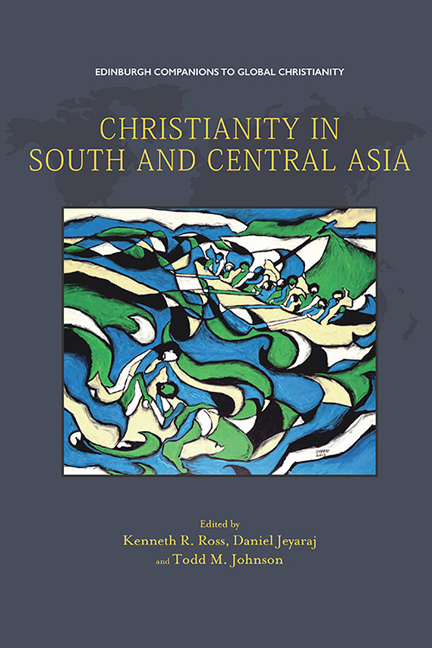Mission and Evangelism
Published online by Cambridge University Press: 30 April 2020
Summary
‘You will be my witnesses … to the ends of the earth’ (Acts 1: 8; cf. Luke 24: 48). This is evangelist Luke's version of the earliest Christian community's conviction concerning the Christian vocation: it is not about saving oneself as much as it is a call in relation to the world outside. All four gospels, as they come towards the ends of their narratives, link the resurrection of the Lord Jesus with the outpouring of the Spirit and mission. Significantly, the spelling out of this conviction has not been uniform at all times or in all contexts. This essay tries to unpack the nuances of the understanding of this mission/evangelism in South and Central Asia in the twenty-first century.
Given that different understandings of the word ‘mission’ are possible, for practical purposes this essay takes mission to mean Christian witnessing as an outreach to the world so that the message of the gospel may reach all, with the accompanying option to become disciples of Jesus Christ and, thus, be agents of the transformation of the world. Though some might take evangelism as the church's organised activity of spreading the gospel, for this essay ‘mission’ and ‘evangelism’ are interchangeable.
Until about the middle of the twentieth century, the churches in South and Central Asia, by and large, were operating from a concept of mission inherited from their Western counterparts: namely, saving souls by proclaiming the gospel. However, events like the Second Vatican Council of the Catholic Church (1963–5), the Lausanne Conference (1974) of the Evangelical movement and the missiological statements of the World Council of Churches (1982 and 2012), as well as parallel developments in the world outside – such as the fall of colonialism and of communism, the gradual emergence of a polycentric world, the growing self-confidence of other religions of the world and the UN Universal Declaration of Human Rights (1948) – contributed to the emergence of fresh perspectives of mission in South and Central Asia. Though it would be an oversimplification to generalise these evolving trends as common to all churches of these regions, or as exclusive to them, we can still identify certain characteristics as leading aspects of the theory and practice of evangelism in most parts of South and Central Asia.
- Type
- Chapter
- Information
- Christianity in South and Central Asia , pp. 351 - 362Publisher: Edinburgh University PressPrint publication year: 2019

